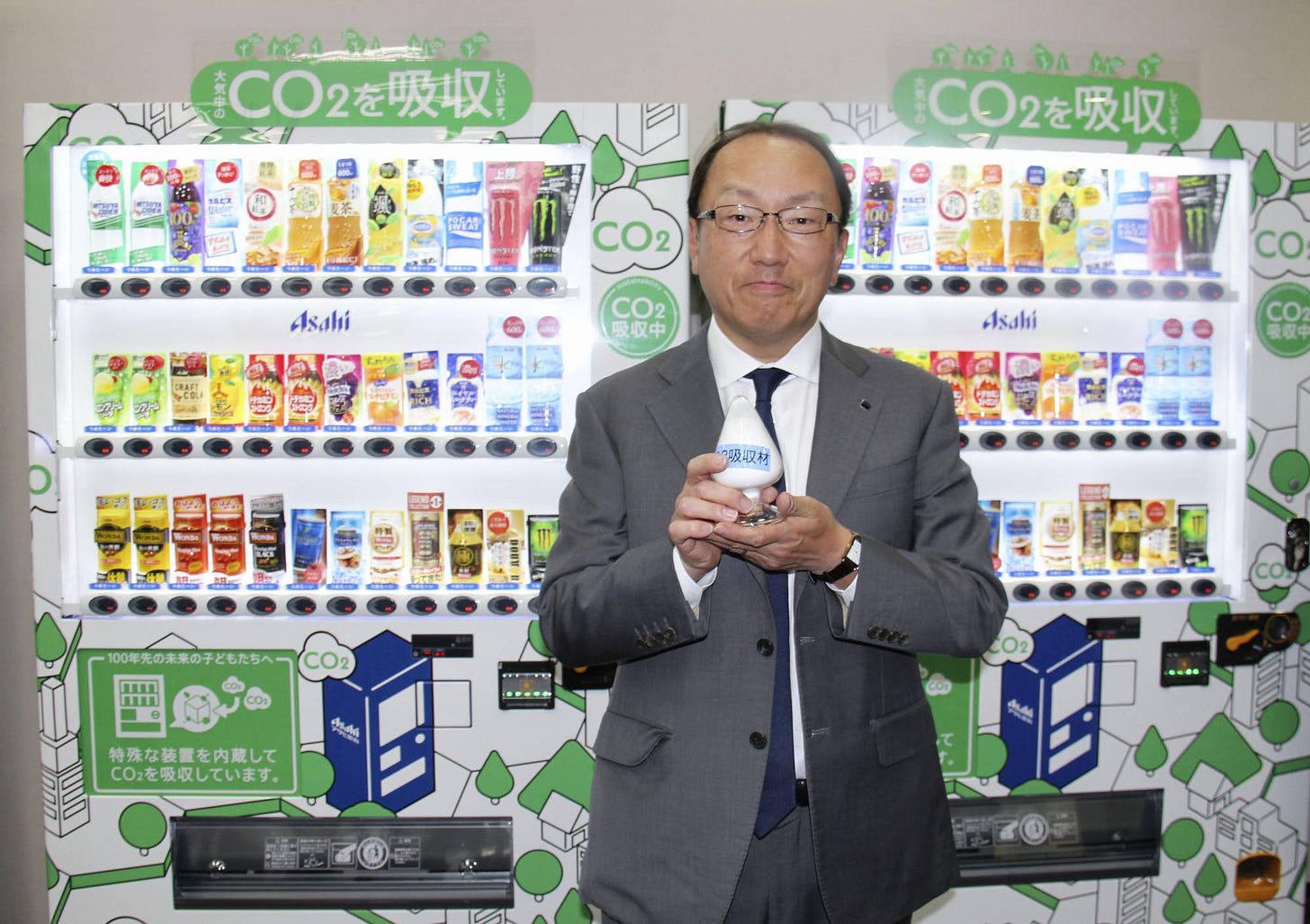Other ways to fight plastic and CO2
Welcome to "nouveau monde", a four-handed newsletter to better understand how to make the world better through the lens of retail. This is #65.
Thanks for reading Nouveau Monde! Subscribe for free to receive new posts and support our work.
Le menu du jour at nouveau monde is about doing good for the planet. See below!
Today's newsletter is 794 words, a 4-minutes read.
Read, like, share, subscribe, comment :-)
Stop use of plastic!
by Phil
Walking on aisles in any supermarket in order to find a decent deodorant is definitely a waste of time. Plastic everywhere, rarely natural, just the smell around gives you an idea of the potential pollution.
The personal care and beauty industry produces more than 120 billion units of packaging every year globally—most of which are not truly recyclable. In 2018, in the U.S. alone, almost 7.9 billion units of rigid plastic were created just for beauty and personal care products. You can be sure it did not get better in 2023.
Eticos is a Dutch startup which mission is to eliminate single-use plastic out of the bathroom routines, with a product which is good for your health. It’s refillable and a natural deodorant with plastic free refills, without aluminium, parabens or other harmful chemicals. The presence of aluminium in deodorant that could be a cause of cancer can be discussed by specialists, it does not change the fact that most of the available products are definitely not good for your skin. How could it be when you try some of them? The company did extensive research on the type on ingredients to pick up and source, but also on the business model where I would not be surprised to find a subscription option available when the products are launched.
“Much of the marketing suggests that they’re safer than more traditional underarm products, but that hype is not based on science” says an article on the New York Times. I must admit I have confidence on the experienced team of Eticos
The interesting part of the story here is that this type of startup has always the same type of exit strategy: develop the business to a certain point that the big guys like Unilever, Procter and Gamble or Johnson & Johnson could be interested to put some money through their corporate venture or even acquire them, and become a small drop in an ocean. There is not yet a giant GPC to face the other giants with finally a long list of healthy personal care products.
Emergency of climate change and so on? Nah…
Suck it and see
by Anthony
Japanese brewer Asahi plans to test and deploy vending machines sucking CO2 coming from cars and human activities in urban areas:
The idea is that while it sucks air to warm or cool products inside the machine, it will filter CO2 and stock it for it to be used later in the concrete or fertilizer industry.
According to Japan Times:
Described by the company as a potential “forest in the city,” the machines, which are being patented, will contain a white powder-like material made from a variety of calcium compounds. Once it has absorbed a certain amount of CO2, the powder will then be used for industrial purposes such as making fertilizer and algal sea beds.
The experiment, which will begin with about 30 units installed in the Kanto and Kansai regions, is part of an effort by the firm to achieve carbon neutrality by 2050. Each machine is expected to absorb approximately 60 kilograms of carbon dioxide — or 20% of the carbon emissions it produces — each year, according to company spokesperson Yoshiie Horii.
Good or bad idea according to you?
For me, it’s the exact bad idea : first it focuses on a small part of the process while not reducing what has the most significant impact: the product.
The article says it will absorb 20% of the CO2 the vending machine is producing, so maybe we could think about a way to erase the vending machine instead of trying to reduce its footprint.
It also says that the brand wants to patent its idea : in an effort to reduce significantly emissions, why not open source it? Just in Japan, there are about 6 Million vending machines and Asahi just operates 260,000 of them. In times of emergency, it might be time to collaborate?
Finally, the use of that sucked CO2 : concrete or fertilizer. Yes, using that specific CO2 will reduce the use of CO2 to produce fertilizer. But maybe, we could think of another way to use that precious CO2. And reduce the overall production of fertilizers.
What do you think? Am I too grumpy?
Bonus track by Anthony
You can access the full nouveau monde playlist here on Spotify.
Thanks for reading Nouveau Monde! Subscribe for free to receive new posts and support our work.



